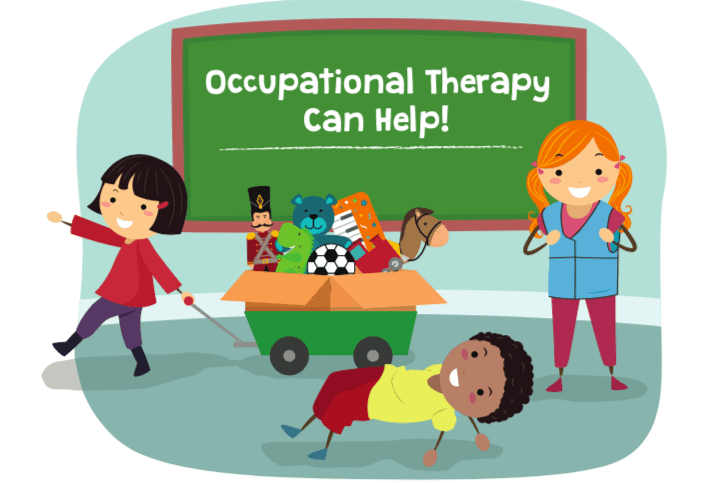Autism Month: Different People, Different Stories
To honor April, recognized as Autism Awareness and Acceptance Month, we are going to share several contrasting stories about autism. Our intention is to offer different glimpses or takes on what autism is and what it means to have autism. Our message in this blog series is simple: Autism: Not all bad, not all good.
Adults with autism.
Due in part to what we know about the importance of early intervention, there is great focus on children with autism. Seemingly unbeknownst to researchers, funding sources, and providers, these children actually grow to become adults.
A couple years ago someone posted a question on Reddit asking,
"What's it like to personally live with autism?"
Someone responded. And in true comment section style, it led to some great dialogue between respondents. Following is an edited-down version of the original response written by a man with autism "thj"
"I don’t have it as strongly as many, and your question is akin to asking a squirrel how it is to be a squirrel. The squirrel only has his own experience to compare with. Experiences will vary from person to person. However, I’ll give it a try…
In general…
- Before you know you have it, you simply assume that you have an odd personality.
- After you find out that other people are in the same situation as you, you realize that you are in fact quite a normal autistic, and that many of your quirks are symptoms.
Social experience…
- You have some trouble taking hints, but only figure this out very late, or when other people tell you. It takes you very long to learn how to pick up in hints, and you never learn pick up on all of them.
- You sense that other people place more importance on how they are feeling. It affects their judgement, and things that are not based on logic and facts may come off as unreasonable or immature to you.
- You notice that people spend more time on small talk and polite phrases than you, but you don’t like it, as it don’t really convey useful information. You may have trouble initiating conversations with strangers because you lack skills in this area.
- You notice that everyone is more concerned with events among family and friends than you are. You don’t particularly enjoy Facebook. EDIT: But you do like how it lets you keep in touch with people while maintaining a safe distance.
- You feel less worried about sharing private details with people, as they don’t embarrass you to the same degree.
- You frequently forget that your words and actions could affect other people, and if you do remember, you often underestimate it. Other people assume that you are selfish, because they seemingly refuse to accept that a brain disorder can make you momentarily forget that other people have intents and preferences, and that this is different from being consciously and deliberately malicious.
- You have some issues with the tone or the volume of your voice, as you may forget that not everyone in the room wants to hear what you’re saying.
- You have more technical, geeky or obscure interests than others.
- You really love cats, and find dogs overwhelming much in the same way you find people to be overwhelming.
- You think parties and concerts are too hot, crowded and noisy.
- You have only had short romantic relationships, if you had them at all, and they only happened in your mid-to-late 20s. You’re probably unmarried or divorced after a short marriage.
- You much prefer to stay inside your house.
- You really want people to notice you and your abilities (from a safe distance), but you aren’t so good at extending that to other people.
- You like receiving clear emotional signals, since you’re not so good at picking up subtle emotions, but you are bad at sending these signals to others.
Sensory experience…
- You notice that other people are less sensitive to heat, touch, noise or light than you.
- You have trouble picking out voices in a crowded or noisy room. You sometimes find it difficult to understand voices on the phone.
- You often completely forget about time and place if you’re enjoying something, and will often experience a level of immersion akin to that of a child watching an exciting movie, even if you’re an adult, and you’re merely building a model airplane.
- You often remember that something happened, but not when it happened, or who said what. You get reactions from people when you can’t properly account for these things.
- You remember all the mathematical powers of 2 up to 262144, but you can’t maintain balance on your bank account, nor can you remember to pay your bills.
- You’re clumsier than other people.
- You’re very concerned with details. You notice small mistakes everywhere, and they bother you until they are corrected.
- You can’t sit still. You often shake your foot, bite your lips or fidget with your hands. Not doing so feels uncomfortable, because tension, anxiety or frustration builds up inside, and your body feels numb if it’s not moving.
- You occasionally feel like acting like Jim Carrey, and contort your body and face. With your friends, you usually manage to fit this into the context of being goofy.
- You tend to sit lopsidedly and lean on things, because this is more comfortable somehow. You might find yourself tilting head more often than others.
- You may have some issue with controlling your food intake. I suspect that the feeling of satiation may be offset in some autists, and people with weight issues in general. EDIT: You may have a poor appetite instead. You are particular with the mouth feel of foods.
Emotions…
- You have a full range of emotions, but you’re terrible at displaying them, so everyone, including the psychiatrists who define the symptoms, assume that you’re devoid of them.
- The effect emotions have on your decision making is smaller. You may feel a certain way about something, but your logic will often override it. You accept uncomfortable truths, and may seem jaded. People will occasionally compare you to an old man.
- You are a hard person to motivate. Most people are motivated by their emotions, but this doesn’t have much of an effect on you, so you’re stuck tickling your logical brain constantly, thus the preoccupation with obscure, nerdy interests at all costs. You have trouble keeping a job because of this motivational issue. You have perfect order in the computer programs you write, or your collection of Star Wars paraphernalia, but your apartment is a mess.
- You’re prone to getting depressed, and find it hard to pull yourself out of it, much like you find it hard to take control of your life, and stop doing entertaining but useless things all day."
Here's a link to the original post:
http://www.reddit.com/r/AskReddit/comments/uuw5f/are_there_any_redditors_out_there_who_have_autism/





